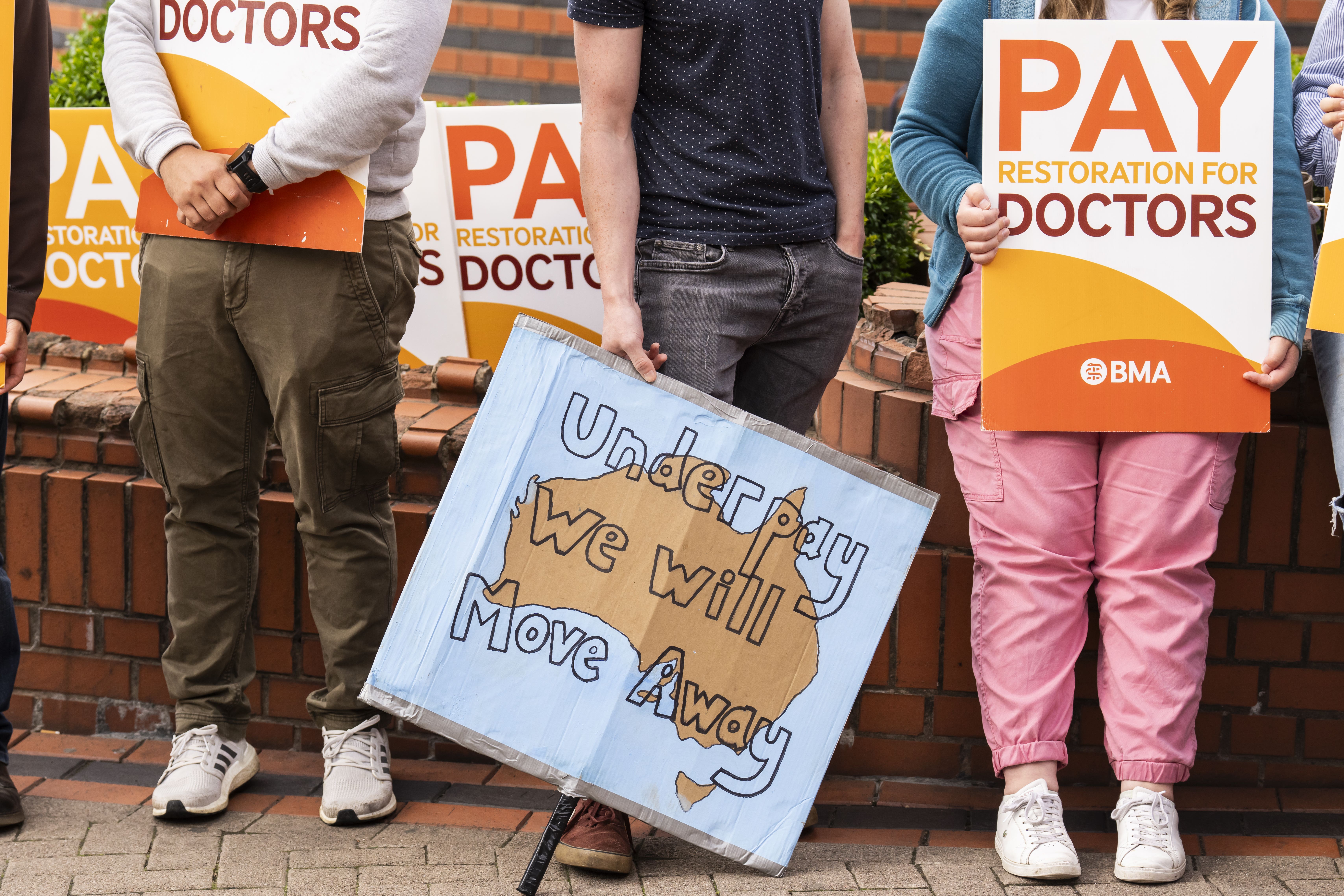Sunak: NHS strikes ‘holding back progress’ on cutting waiting lists
The number of appointments and procedures cancelled due to industrial action has passed the one million milestone.

Rishi Sunak said doctors’ strikes have held back progress on his pledge to reduce NHS waiting times.
It comes after the number of appointments and procedures cancelled due to industrial action in the health service passed the one million milestone.
The latest figures released by NHS England this week followed four days of walkouts, including the first co-ordinated walkout by consultants and junior colleagues in history.
Having put this record funding in and worked really hard on it, it is frustrating that the strikes are holding back progress
The Prime Minister, giving a string of local radio interviews on Thursday ahead of the Conservative Party conference, said he shared people’s frustration in the situation.
He told BBC Radio Cornwall: “I know people are frustrated. I’m frustrated because, having put this record funding in and worked really hard on it, it is frustrating that the strikes are holding back progress.”
He said: “A million appointments have now been cancelled or rescheduled because of the industrial action. People can get a sense of how much impact that is having.”
Mr Sunak said: “People will say: ‘Why don’t you just get round the table and talk?’ We have a process for pay and we do exactly that.”
The Prime Minister pointed out that agreements have been reached with more than a million NHS workers, including nurses and porters, and that the junior doctors have been offered more than anyone else in the public sector.
“Those are the facts and people will make up their own minds,” he said.
The average junior doctor is receiving an 8.8% pay increase and consultants are getting a 6% rise alongside reforms to their pensions, Health Secretary Steve Barclay said earlier this week, as he was commenting on the “grim” one million milestone.
Mr Sunak listened as he was played a recording of a 77-year-old Cornwall pensioner, Roger Hollingsworth, describing his experience of long waits for an ambulance and then in hospital after a suspected heart attack.
He said: “Everyone will have a different story. Obviously Roger’s story is not acceptable. I’m not going to try and defend that.”
Commenting on Mr Hollingsworth’s account, Labour’s shadow health secretary Wes Streeting tweeted: “This is appalling.
“Rishi Sunak said this terrible case is indefensible, but then blamed NHS staff.
“He is the Prime Minister. When is he going to take some responsibility?”
Consultants walked out for 48 hours on September 19 and were joined by junior colleagues on September 20. The junior doctors’ strike then continued until 7am on September 23.
Junior doctors and consultants are set to stage another co-ordinated walkout on October 2, 3 and 4, according to the British Medical Association.
Bookmark popover
Removed from bookmarks